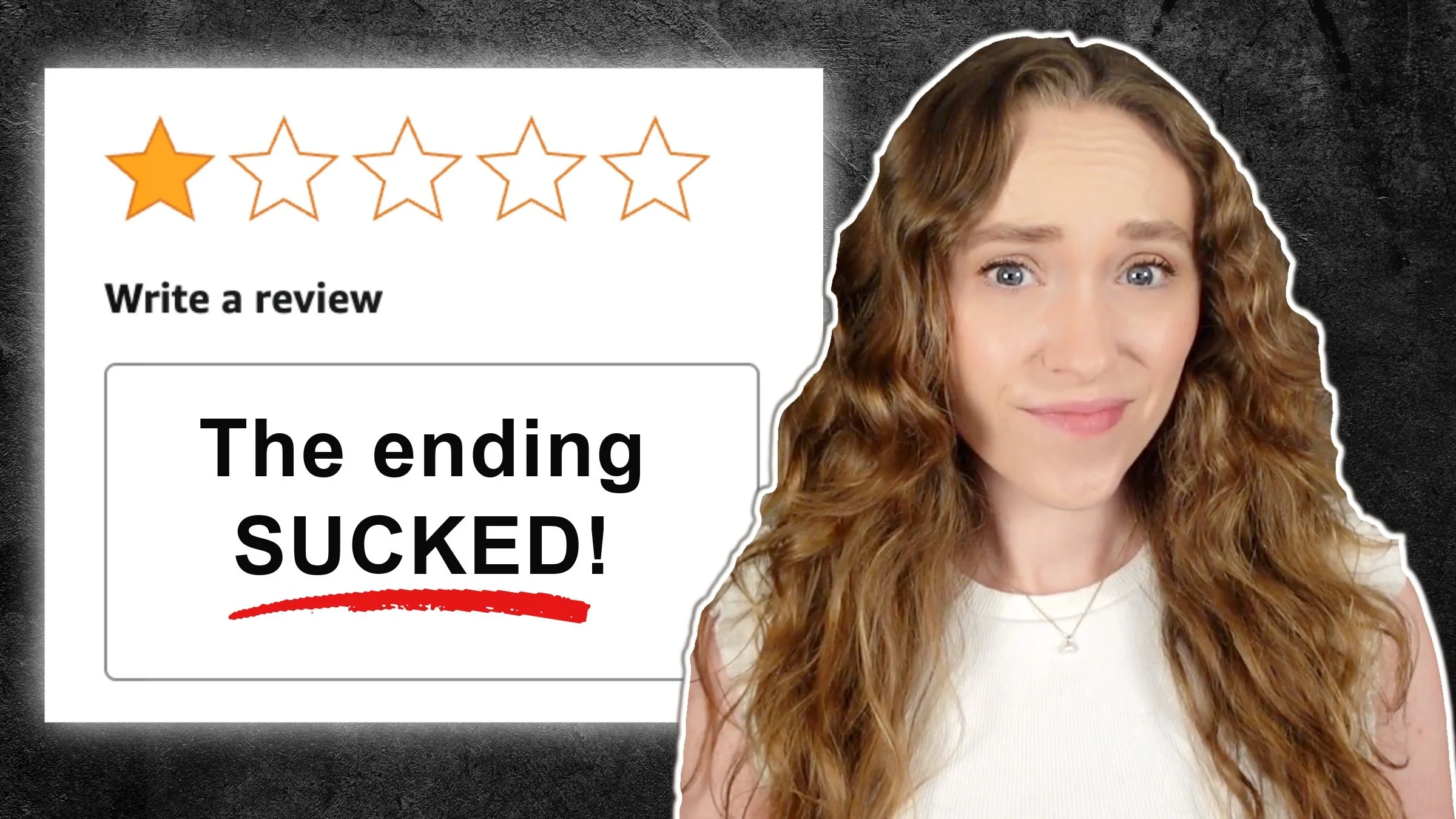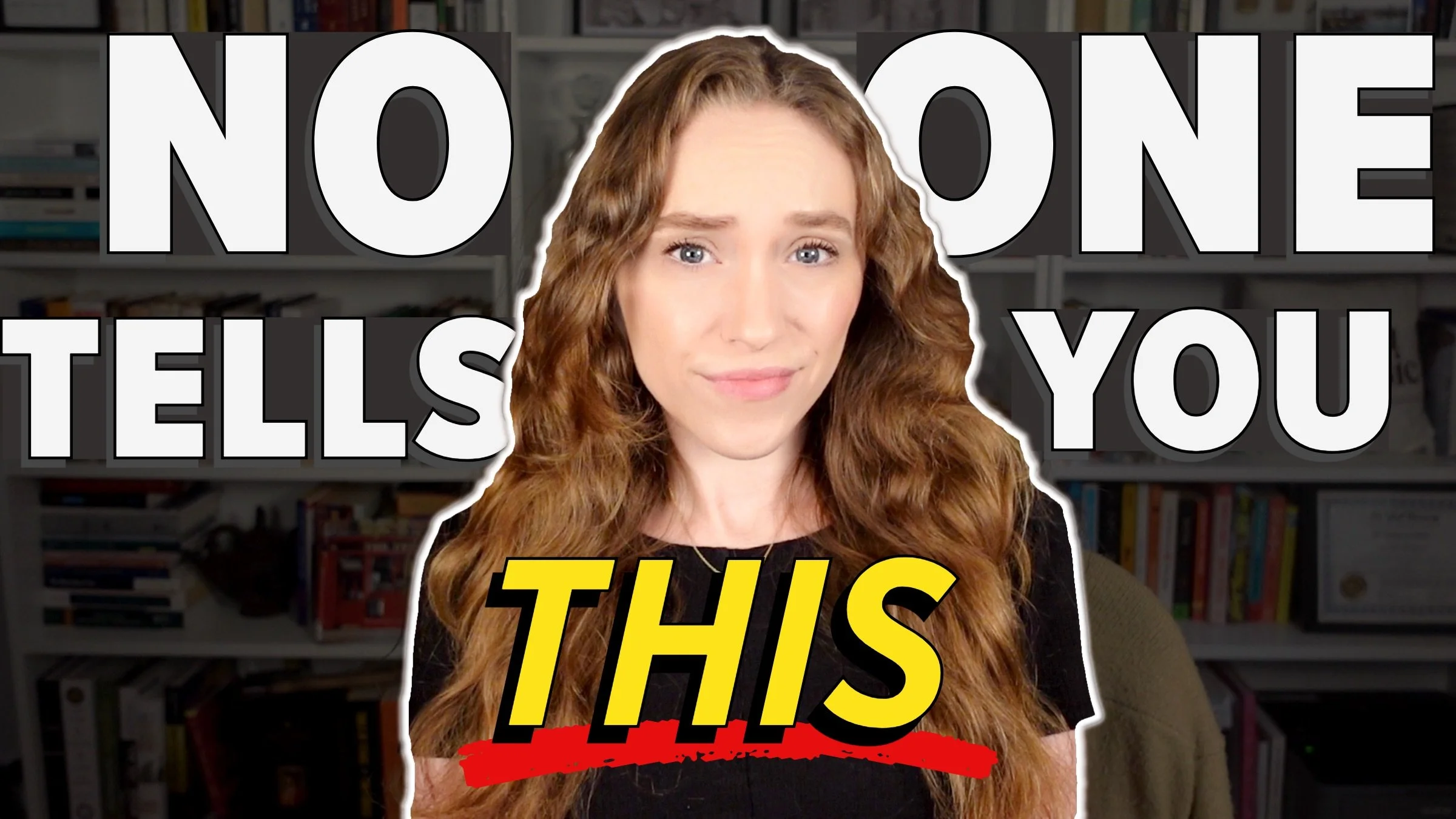Do You Need an Editor for Your Book? Yes, and Here’s Why
HIT PLAY OR READ THE POST BELOW:
No matter if you're a first-time author or a famous novelist, working with an editor is one of the key parts of the writing process. Even internationally best-selling authors have editors and work closely with them to develop their stories. If you’re embarking on the book-writing process for the first time, you might be wondering, “Do I need an editor for my book?”
I'm going to give you the three key reasons why all writers need an editor. These reasons honestly might not be what you think! When I say working with an editor, I am not only talking about copy editing and proofreading, which are the processes of catching grammar errors and spelling mistakes. These things are important and should definitely be a part of your writing process, but editing goes far beyond catching grammar and spelling mistakes.
Rather, what I'm talking about is developmental or structural editing, which is the first stage of editing that a story will go through. It assesses things like point of view, structure, organization, and characterization. This is more macro-level editing, with proofreading and copy editing being more micro level. Both are super important, but in this article I'm going to talk about developmental, big-picture editing.
Now admittedly, I am biased as a developmental book editor myself. But I got into this business because I love working with writers on strengthening their stories and seeing the value and the confidence working with an editor instills in them.
So here are the reasons why every writer needs an editor for their book.
You Are Too Close to Your Own Work
The first reason why editors are critical for any writer is the fact that you are too close to your own work to see the flaws in it. An editor provides a fresh perspective on your draft. They're coming at it from a third party perspective, as they don't know the story, ideas, worldbuilding, or characters in your novel going into it for the first time.
Whereas you, the writer, have known everything that has to do about your novel from even before its beginnings, when you were still thinking and toying around with your novel as just an idea. You are so in the thick of your story, you can’t see the forest from the trees. Which is where an editor’s perspective can help.
For example, something that makes perfect sense to you when you read through your draft might actually not make sense to your readers, but you won't be able to determine that unless you have an external perspective come in.
Self editing is still important, but it's not going to catch every error in your story and it's not always going to elevate it to the next level. By working with an editor, you will be gaining a second set of eyes and brain that will be working hard to make your story the best it can be.
You Are Too Focused on the Page
The second reason why writers need editors for their books is because an editor helps you see beyond the page. As I mentioned earlier, editing goes way beyond fixing and correcting spelling and grammar errors that you see in the document itself. It's also about discovering what's not on the page that should be. A good editor will provide ideas on how to deepen the story you're trying to tell.
For instance, an editor can offer an idea you hadn't thought about but, you decide, is actually important to the story. Based on their feedback, you could end up adding a whole other character's perspective or developing their backstory. Perhaps you realize you need to change the setting or add more sensory details to bring the setting to life. These are things you don't necessarily see when you're looking at your manuscript, but an editor reading your novel for the first time can bring that broader perspective and can determine what is going to enrich your story and make it even more effective than it already is.
If you're hoping to publish your story in some capacity, working with an editor is also important because they can help you determine how to shape the story so it resonates with the intended readers. If you are looking to publish it within a certain genre, an editor can help you determine what needs to be in your draft so it best fits that genre. They are bringing their professional knowledge of the industry, which has been earned through their editing of many books, to help guide your book to narrative success.
You Will Become a Better Writer
Lastly, working with a good editor should ultimately make you a better writer. The goal of any editor is to help you strengthen your writing and your storytelling ability. It is about you and your story, not about the editor's opinion. Editing is never about the editor's vision for the story, it is about yours.
That's why I approach editing as a partnership where we can together make your vision come to life. My feedback is all in an effort to help that vision become a reality. Ideally, the feedback you get on your current story will help you strengthen the next one you write, so investing in professional editing has a compounding benefit.
Writers sometimes have the impression that editors will hack up their novel with red marks everywhere, telling them what's wrong and then leaving them to figure out their issues on their own. However, that's not my approach to editing. I don't think that's how the partnership should be or what it should look like. It should be a collaborative effort, a two-way street going both ways.
So, yes, I might deliver a document with a ton of red text on it from the suggestions I've added, but from there we're going to have a dialogue on why those changes will make the story more effective. If you reply that you don’t agree on something, then I will respect that and leave it alone.
You and your editor should have these kinds of conversations so that you end up in a place where your vision for the story is retained but elevated by whatever the editor brought to light. Ideally, you both will feel like the manuscript has become much stronger.
A note: not all editors approach their work the same way I do. Not all editors are going to have all the same opinions about editing that I shared. If you decide to invest in an editor, do your research to find one whose approach truly resonates with you. That partnership will only make you and your novel stronger.
So, do you need an editor for your book? I hope this article helped you see the value in working with an editor to strengthen your writing, no matter what type of book project you're currently working on.
Thanks so much for reading and happy editing!





